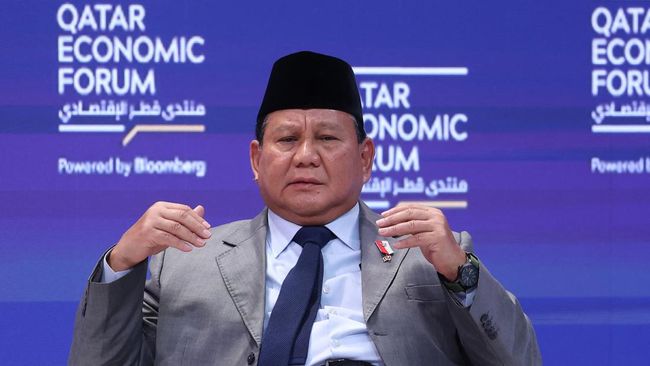MSMEs Contribute to Accelerating Economic Growth Targets in the Era of President Prabowo
In the era of President Prabowo Subianto’s administration, MSMEs have become one of the main pillars in efforts to accelerate economic equality in Indonesia. Realizing the importance of this sector, the government has given special attention through policies that focus on developing MSMEs so that they can contribute more to the national economy. With an economic approach known as Prabowonomics, the government is targeting economic growth of 8 percent, much higher than the previous era, which was around 5 percent. To achieve this, MSMEs are positioned as the backbone that not only drives growth but also ensures a more even distribution of the economy.
With a contribution of around 61 percent to Gross Domestic Product (GDP), MSMEs are a sector with a dominant role in the Indonesian economy, outperforming other ASEAN and G20 countries in this regard. In developed countries such as Germany and Japan, the contribution of MSMEs to GDP is around 53 percent, while in Singapore it is around 44 percent. Of the total business units in Indonesia, 99 percent are MSMEs spread across various sectors and operating throughout the country, from urban to rural areas. This shows how big a role MSMEs play in creating economic opportunities in the regions, helping to balance the economy and reduce existing inequality.
The government has also taken concrete steps to support the development of MSMEs, including the separation of the Ministry of Cooperatives and MSMEs, which allows for a more targeted focus. The existence of a special ministry for MSMEs reflects how serious the government’s attention is in encouraging this sector to become more resilient and ready to compete.
Minister of SMEs, Maman Abdurrahman emphasized the need for SMEs to be integrated into the global value chain to help Indonesia become a developed country. Maman also highlighted that SMEs must be the backbone of Indonesia’s economic growth strategy, especially in achieving the goal of becoming a high-income country by 2045.
Several government programs to support MSMEs include increasing access to financing, digitalization, and expanding markets. Over the past few years, the government has encouraged MSMEs to transform digitally, which has proven to be very effective in expanding their market reach in the digital era.
Financing is key to strengthening MSMEs. The government integrates various financing programs, including the People’s Business Credit (KUR) with low interest rates and productive assistance for micro businesses. Collaboration with State-Owned Enterprises (BUMN) and the private sector is also encouraged, which allows MSMEs to get greater support in improving product quality so that they can penetrate the international market. Through this collaboration, MSMEs are encouraged to compete in the global market, reduce dependence on the domestic market, and increase the competitiveness of the national industry.
The resilience of MSMEs in facing various crises is also an important reason for the government to support this sector. During the 1998 economic crisis and the COVID-19 pandemic, MSMEs showed extraordinary adaptability and helped economic recovery. This sector is able to provide economic stability amidst global uncertainty, making it a valuable asset in facing the threat of recession or economic contraction. In addition, by absorbing around 97 percent of the total workforce, MSMEs play an important role in reducing unemployment and improving people’s welfare.
However, it is undeniable that MSMEs still face major challenges, such as access to technology, financial constraints, and lack of training and coaching. In response to these challenges, the government has launched various training and mentoring programs, including the MSME Level Up Program, which is designed to help MSMEs improve their skills in the digital era. This program also provides wider market access and opens up opportunities for MSMEs to utilize digital technology in business.
In addition to digitalization, the government also launched the Bangga Buatan Indonesia program, which aims to encourage people to use local products. With this campaign, MSMEs are not only supported financially but are also given a stage to introduce their products to a wider market. This government effort is expected to create more added value for MSME products and increase demand for local products.
In addition, the Minister of Trade, Budi Santoso is committed to increasing exports of MSMEs through the MSME BISA (Dare to Innovate, Ready to Adapt) Export program. Therefore, all forms of export activities carried out by MSMEs will be accelerated and facilitated.
Along with various efforts made, MSMEs in Indonesia have advantages that cannot be ignored in maintaining national economic stability. In addition to being a provider of employment, MSMEs have great potential to increase the country’s foreign exchange. Regulatory support provided by the government, including the Job Creation Law, opens up easier access for MSMEs to obtain business permits and strengthens the legal basis. This policy makes it easier for MSMEs to obtain financing and run their businesses more professionally.
Although government support continues to be provided, the success of MSME development ultimately depends on the ability and commitment of the business actors themselves. MSME actors are expected to be able to improve product quality, strengthen marketing strategies, and adopt the necessary technology and innovation. The government will continue to provide support through various regulations and coaching programs, but success in facing global competition can only be achieved with hard work from each MSME actor.
With full support from the government and the resilience of MSMEs, Indonesia can maximize the potential of this sector to achieve economic growth targets. The government is determined that MSMEs will continue to be the backbone of the national economy, as well as the driving force for equalizing welfare. All of these steps taken demonstrate the government’s commitment to driving Indonesia towards a more inclusive and sustainable economy, ensuring that all people can feel the benefits of more equitable economic growth.
)* Economic observer from the Pancasila Madani Institute
